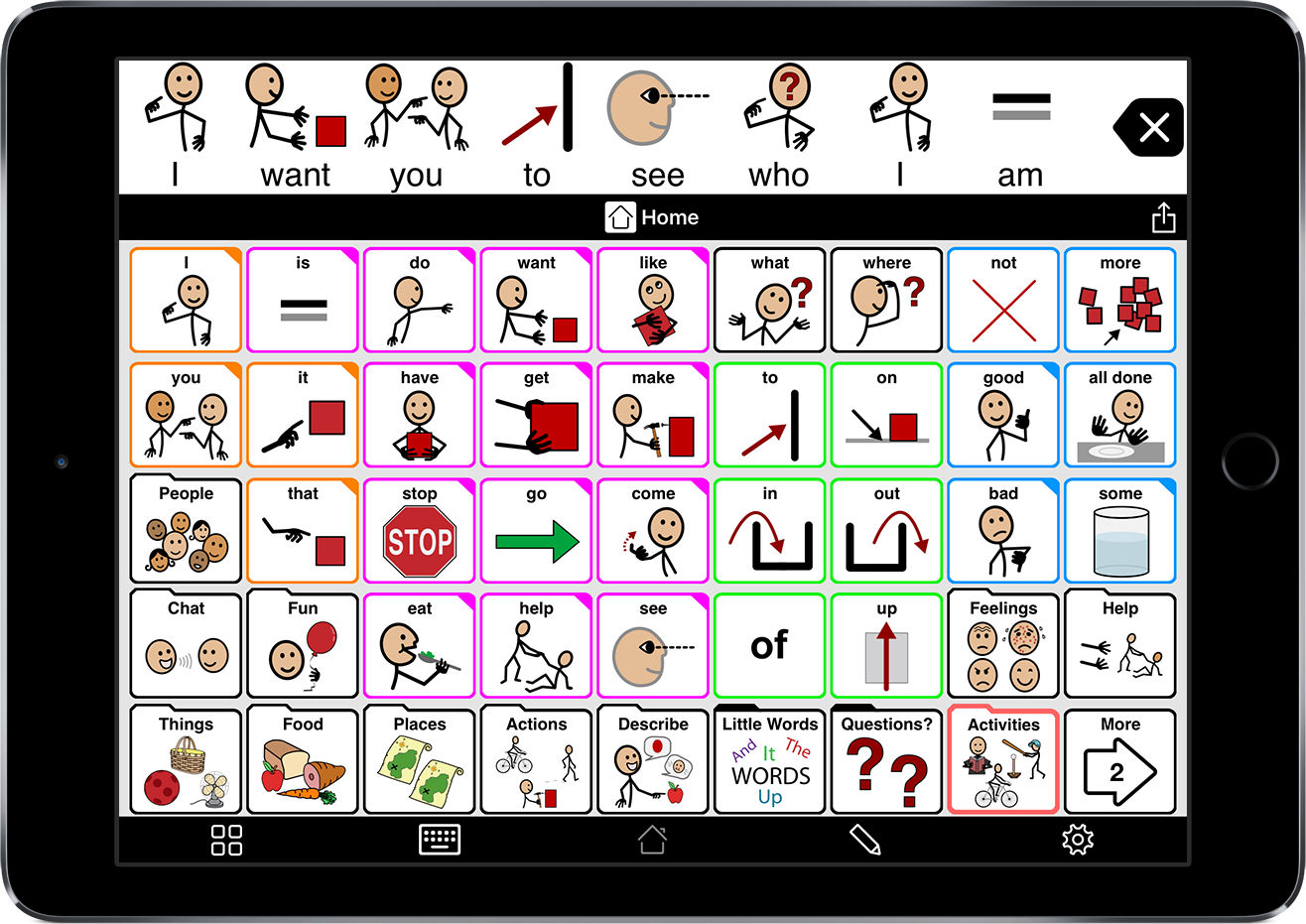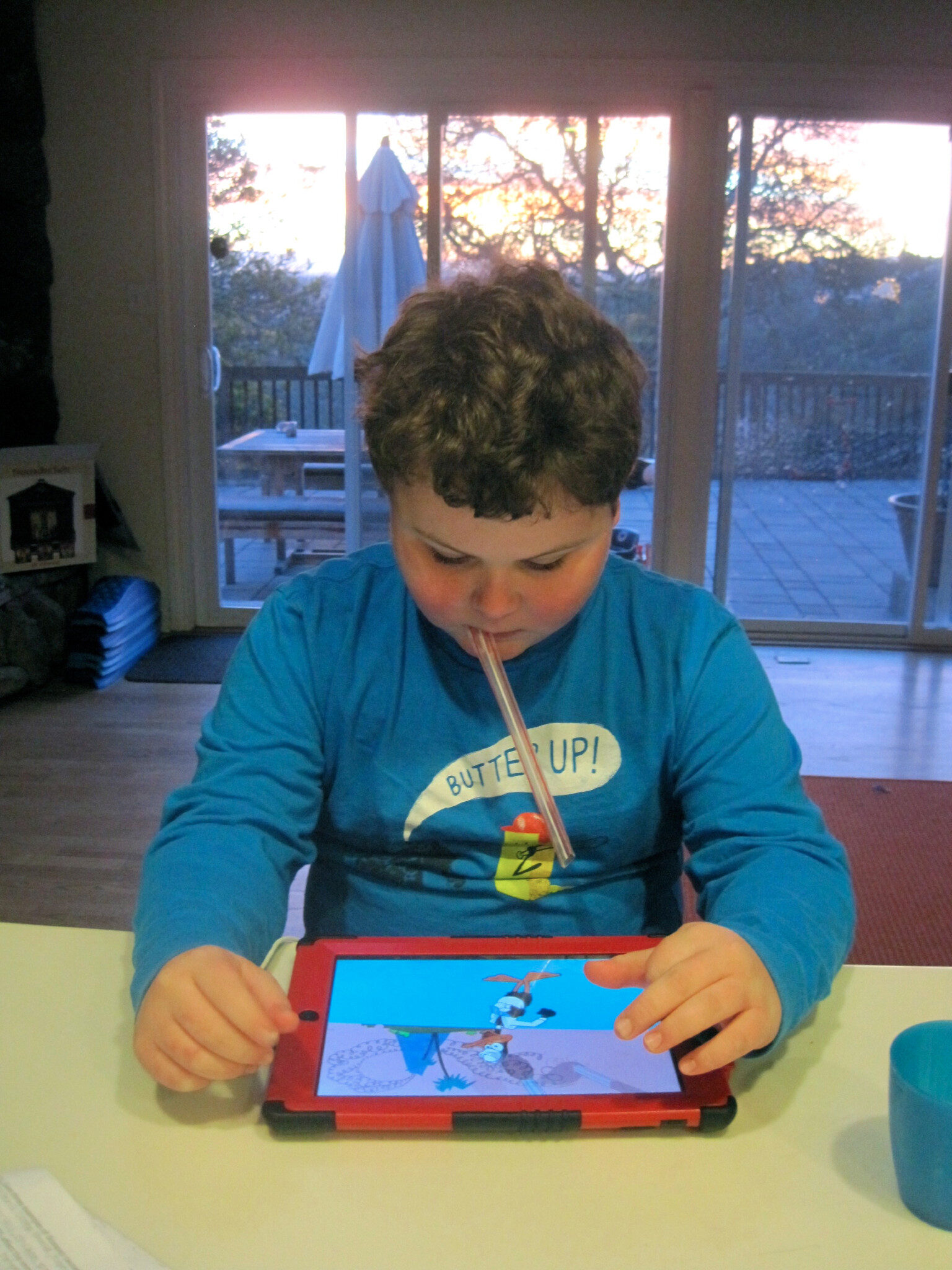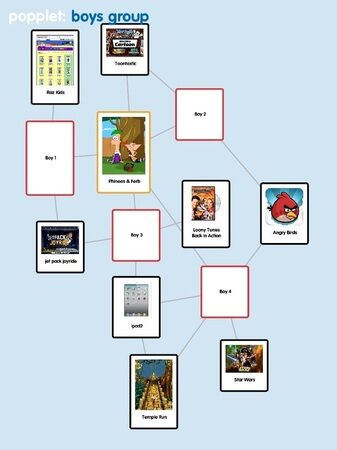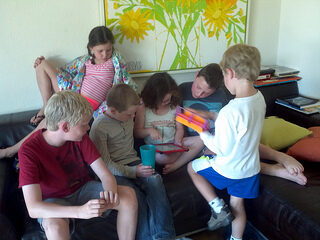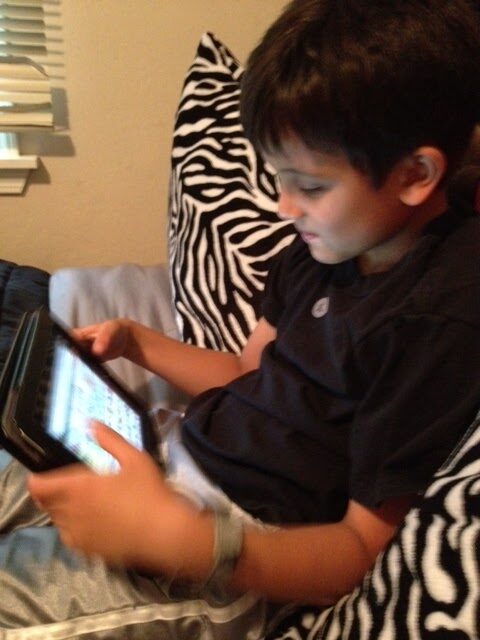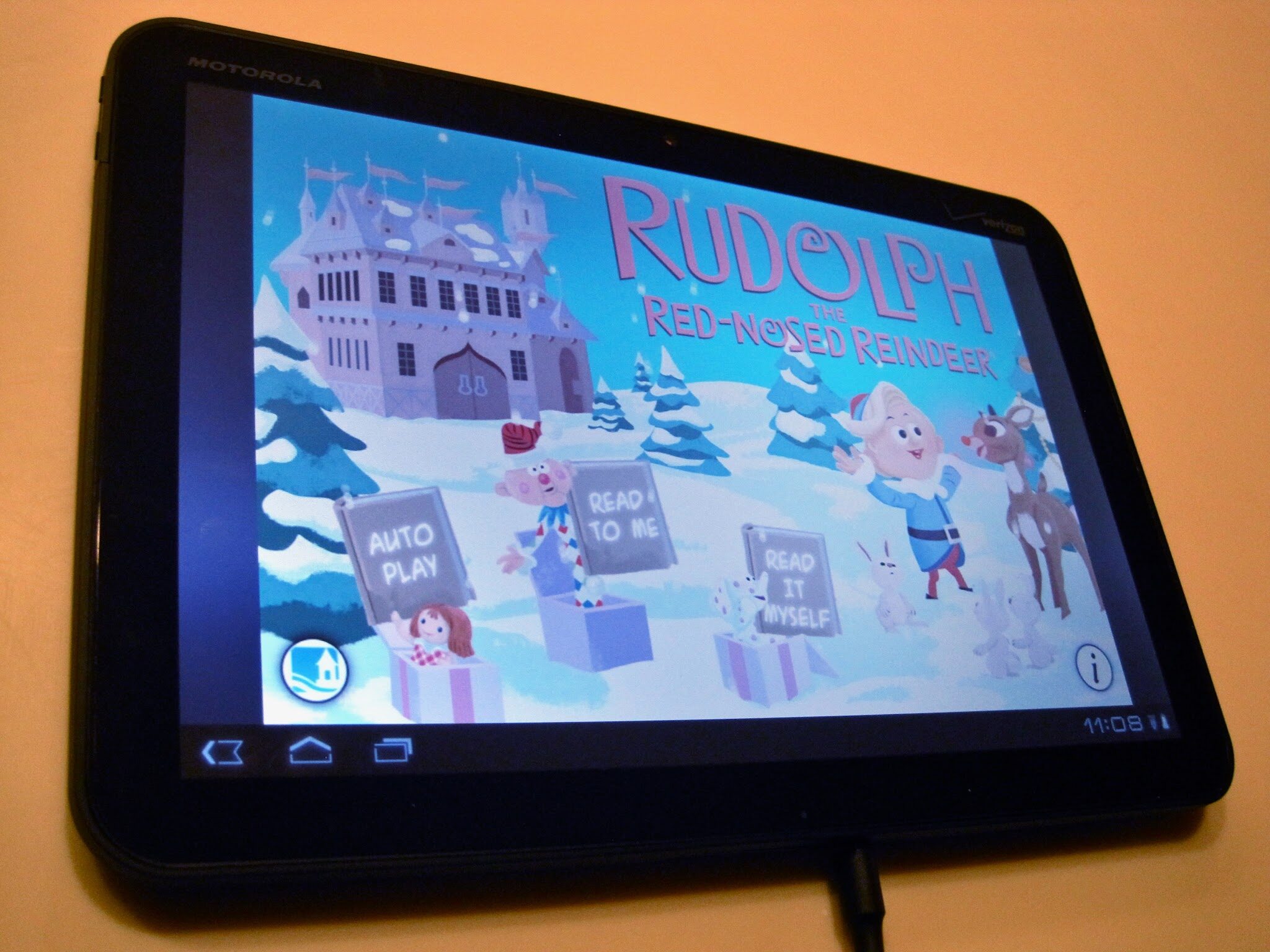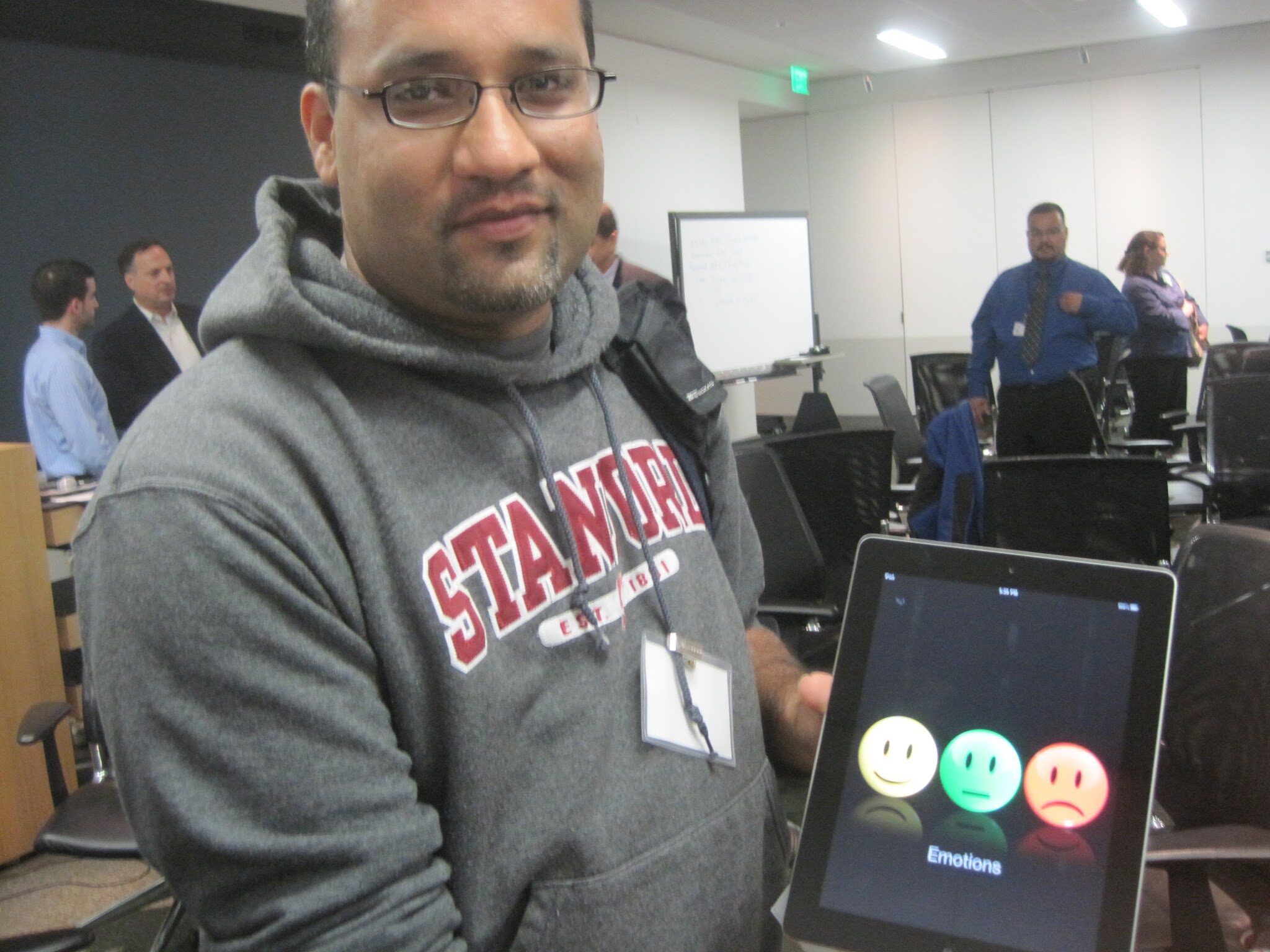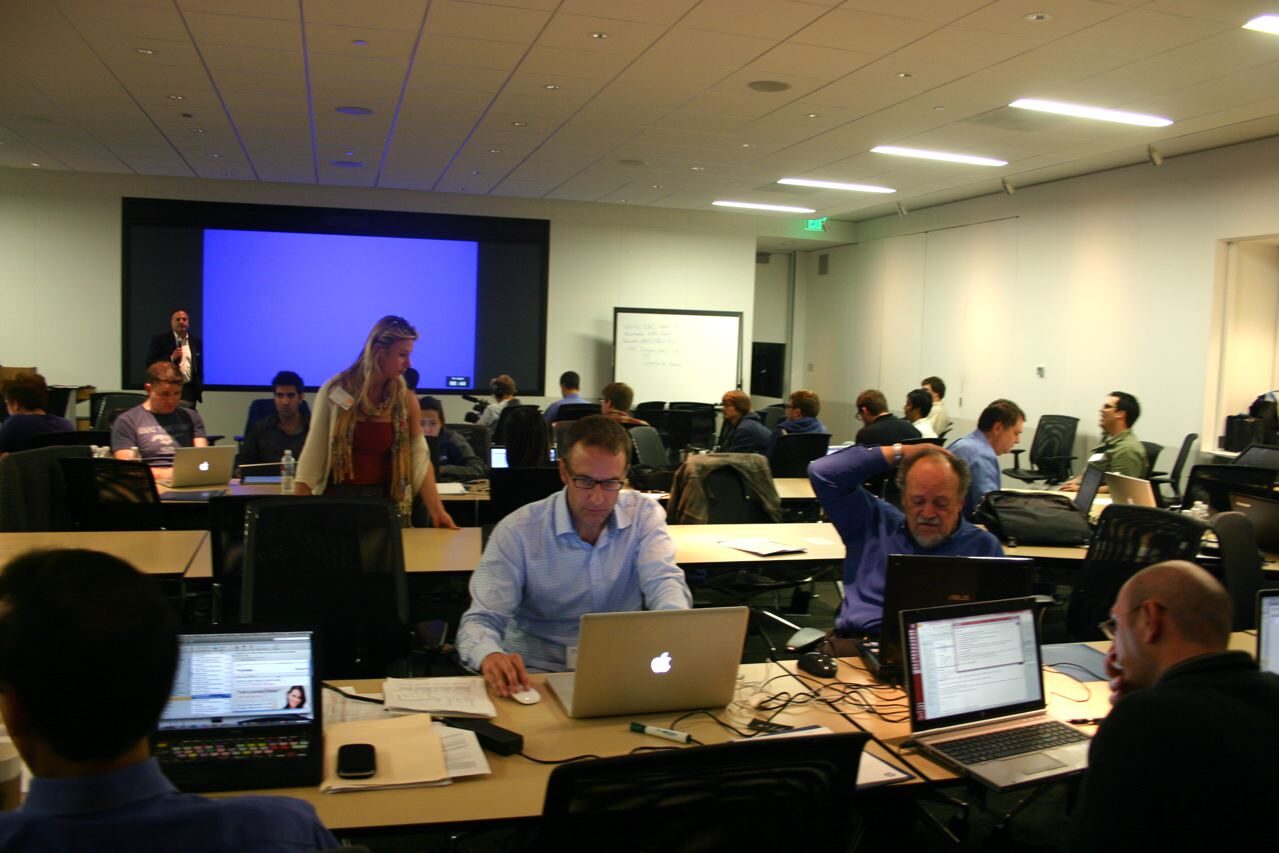How excellent to see major cultural influencers like Apple honor Autism Acceptance during April, like this an Apple announcement about the month’s strategy and events, and descriptions of the apps in their Autism Acceptance Collection—including some excellent app discounts: From Apple: Sunday, April 2 is annual World Autism Acceptance Day, which kicks off Autism Acceptance Month. One in 68 U.S. children has been identified with autism spectrum disorder (ASD) according to the CDC. Since we introduced iPad in 2010, we’ve heard from many parents, children, adults and therapists that iPad has been a key communication tool for Autistic people. And there are now some wonderful apps for Apple Watch as well, such as Proloquo4Text which now not only offers the ability to show your message to your communication partner, but version 3.1 also allows you to speak the message aloud right from your Apple Watch. But perhaps even more moving…
Tag: apps
Shannon Des Roches Rosa www.squidalicious.com These iPads have been around for almost three years now, which is rather mind-boggling. Even though tablets no longer attract sideshow-level reactions with every mention, they are still wonderful tools for many autistic kids and adults, and exciting new approaches and apps keep emerging. I teach autism and iPads workshops all over the country (including a class at San Jose’s Morgan Autism Center on February 9th); the following is a general outline of what I’ll discuss, and my current take on iPads and autism. Tablets: Tools, Not Miracles My initial response to seeing my autistic son kick butt using an iPad was elation, because he was instantly able to learn and entertain himself independently. However, tablets are not for everyone. Evaluate tablets and apps before buying. Tablets encourage presuming competence by enabling visual and alternative communication and learning. Competence expressed and recognized increases self-confidence. Benefits:…
Jordan Sadler MS, CCC/SLP www.jordansadler.net Editors’ note: Jordan is a pediatric SLP, so kids are the focus of her post. However we think the Popplet app and strategies Jordan describes so well could work for all ages. I want to share my review of a fantastic app that I’ve been successfully experimenting with in my social cognition work with kids. Popplet was designed to create visual maps, presentations, and brainstorms across environments such as work and school. It would make a great visual mapping tool for kids who are gathering information for a class research project, for example. I recommend you take a look at the examples provided by the developer, because the sky is the limit as far as ways to use this app. So far, I have used the Popplet app in a couple of really fun ways. First, I found it to be a simple means to…
Shannon Des Roches Rosa www.squidalicious.com www.blogher.com Sometimes I think social skills apps are redundant, since iPads are themselves such social magnets. These tablets can motivate people of all abilities to interact, and give them a common ground for communicating. But as social skills are multi-faceted, and since different folks need support in specific areas, I am grateful for the variety of apps that allow me to turn my son Leo’s iPad into a custom social skills springboard. Leo doesn’t always use apps developed specifically for fostering social skills. Instead, he relies more on apps created for communication and labeling purposes. Leo has a strong social urge, but he’s often overwhelmed by the factors involved — simultaneously processing names, body language, and words. He appreciates apps that simplify the socialization process, streamline his choices, or help him learn to identify people consistently. Leo needs practice and options for learning to recognize…
AAC, or Augmentative and Alternative Communication, provides many autistic people with communication options. We keep hearing how some of those same people are discovering new tablet- or app-based AAC options that even better suit their needs. One such person is Nathan, whose mother Lisa Valerio describes him as, “a 9 year old boy with autism who loves playing outside, swimming, jumping on the trampoline, painting, and putting together puzzles. He uses his the LAMP for Words app now to communicate.” Can you tell us a little bit about how you came to be an AAC family? My son Nathan has autism and verbal apraxia, and after many years of struggling to communicate (and intense SLP services) we determined he needed an AAC device — and became an AAC family. What kind of AAC technology has Nathan been using? How did you choose it? When Nathan was younger we started with…
AssistiveWare’s Proloquo2Go is one of the most popular software programs and now apps for people who use AAC — Augmentative and Alternative Communication. They also make the excellent social story app Pictello. David Niemeijer is the founder and CEO of AssistiveWare, and talked with TPGA about the past, present, and future of AssistiveWare and their apps. —- Tell us about AssistiveWare — how it got started, when, and what products you make. AssistiveWare has its roots in 1995 when Giesbert, a friend of mine, had a serious car accident and broke his neck. I developed KeyStrokes, an on-screen keyboard for the Mac so that Giesbert could not only type using a HeadMouse but also access all the keyboard shortcuts in Photoshop (see http://www.assistiveware.com/giesbert.php). Later I released KeyStrokes as freeware but got so many requests for improvements that I decided that if I was to make all those improvements I would…
UPDATE 11/27: Our Random.org-selected winner is Courtney W.! Congratulations, Courtney. Thank you to everyone who participated, and we encourage you to read the more than 100 wonderful comments left below. -SR —- The good folks at Motorola sent me (Shannon) a Xoom tablet to give away. No hidden agenda, no stipulations — they had simply heard how tablet computers can help people with autism, and they wanted to get two of their devices to people in the autism communities — one to my son Leo, and one to a blog reader. A blog reader who could be you! We TPGA editors had already planned to kick off the holiday season by seeding some positivity: putting up a gratitude post, and asking you readers to leave a comment about something that makes you feel happy or grateful — and we still hope you will. But now, if you like, you can…
Last week Hewlett-Packard hosted an amazing event: a Hacking Autism app hackathon, which showcased innovative and philanthropic synergy at its most brilliant. The all-volunteer event brought together notable autism experts and app developers to focus on a common goal: developing free apps for tablet environments, based on crowd-sourced ideas from the autism community, to help people with autism communicate and contribute. TPGA editor Shannon Des Roches Rosa was invited to participate as a parent and blogger resource based on her autism-specific iPad advocacy work, and found the event so incredibly positive that she is covering it in two separate posts. Part one covered the opening talks by the hackathon’s advisors, and their specific takes regarding autism and technology. Part two is about experiencing the event itself. Innovative technology can make a difference for autistic people. My son Leo excels in ways we (and Apple) never anticipated via iPad/tablet apps, which…
Last week Hewlett-Packard hosted an amazing event: a Hacking Autism app hackathon, which showcased innovative and philanthropic synergy at its most brilliant. The all-volunteer event brought together notable autism experts and app developers to focus on a common goal: developing free apps for tablet environments, based on crowd-sourced ideas from the autism community, to help people with autism communicate and contribute. TPGA editor Shannon Rosa was invited to participate as a parent and blogger resource based on her autism-specific iPad advocacy work, and found the event so incredibly positive that she’ll be covering it in two separate posts. Today covers the opening talks by the hackathon’s advisors, their specific takes regarding autism and technology. The apps developed at the App Hackathon will be posted at HackingAutism.org as they are finalized over the next few weeks. Those interested in hosting or getting involved with a hackathon should contact Random Hacks of…
Elaine Park Our house is frequently really loud, as my seventh grade son, Drew*, races his long fingers at break-neck speed and top volume, up and down the piano, pounding out the Imperial March from Star Wars or some original composition of his own. His fingers are fast and strong, dexterous and coordinated. They are equally skilled at piecing together intricate creations out of his world-class Lego collection. But because of a neurological quirk, this same child can’t tie his own shoes and has difficulty writing with a pencil or pen. He has a lot to say and wants to share it, but the frustration of handwriting often reduces him to despair, and is a frequent problem when it comes to completing language arts assignments. Like many parents of a child on the autism spectrum, I hope this can be resolved by his learning to type. Once Drew has…
